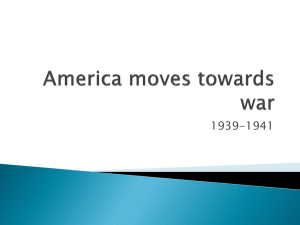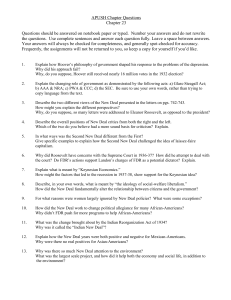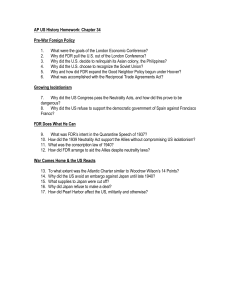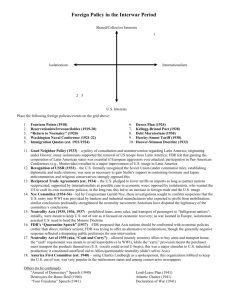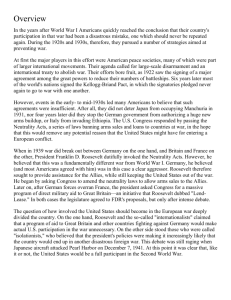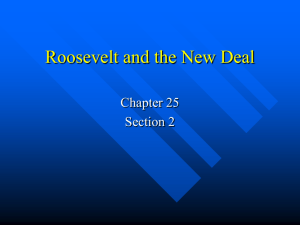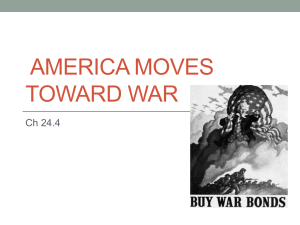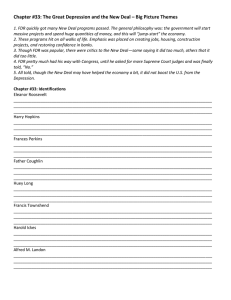Franklin Roosevelt*s Policies, 1933-1938
advertisement
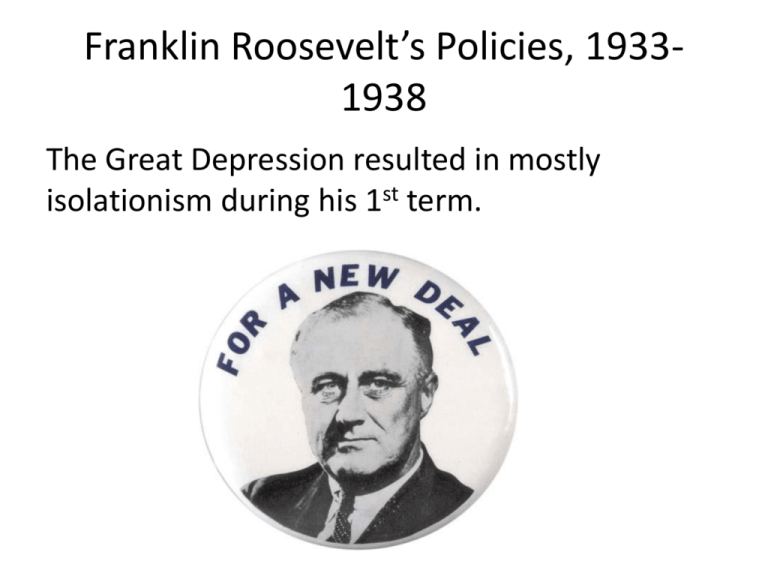
Franklin Roosevelt’s Policies, 19331938 The Great Depression resulted in mostly isolationism during his 1st term. Good-Neighbor Policy • 1933: Roosevelt promised a “policy of the good neighbor” toward other nations of the Western Hemisphere • Sought Latin America’s cooperation in defending the region from potential danger of Germany and Italy – Pan-American Conferences – Cuba: Congress nullified the Platt Amendment and only retained Economic Diplomacy • London Economic Conference (1933) – Roosevelt withdrew support after proposals were made to stabilize currencies • Recognition of the Soviet Union – Wanted to increase trade and boost economy • Philippines – Tydings-McDuffie Act (1934) – Gradual removal of U.S. – Complete independence by 1946 • Reciprocal Trade Agreements – Lowered tariffs – President given power to reduce tariffs by 50% for nations that reciprocated Events Abroad • Fascism and Aggressive Militarism – Italy – Germany – Japan American Isolationists • U.S. was nationalistic, but expressed itself differently than the fascists and militarists • Revisionist History of WWI – 1930’s belief that the U.S. entry into WWI had been a mistake • Neutrality Acts – 1935: authorized the president to prohibit all arms shipments and forbade U.S. citizens to travel on ships of belligerent nations – 1936: forbade loans to belligerents – Forbade shipment of arms to opposing sides in the civil war in Spain • America First Committee – 1940: Isolationists worried about FDR’s pro-British policies – Speakers like Charles Lindbergh traveled country warning Prelude to War • Appeasement – Ethiopia, 1935 – Rhineland, 1936 – China, 1937 – Sudetenland, 1938 • U.S. Response – Roosevelt’s Quarantine Speech – FDR dropped ideas due to isolationist opposition From Neutrality to War, 1939-1941 • Invasion of Poland • Blitzkrieg • Changing U.S. Policy – “Cash and Carry” – Selective Service Act (1940) – Destroyers-for-bases Deal The Election of 1940 • Wendell Willkie (R) • Results – FDR won for 3rd time with 54% of popular vote – Why did he win? • Strong economic recovers due to arms Arsenal of Democracy • FDR’s Four Freedoms Speech – Committed to • • • • Freedom of speech Freedom of religion Freedom from want Freedom from fear • Lend-Lease Act • Atlantic Charter – Affirmed peace objectives at end of war • Self-determination • No territorial expansion • Free trade • Shoot-on-Sight Disputes with Japan • U.S. Economic Action – Froze Japanese assets in U.S. – Cut off access to U.S. materials, including oil • Negotiations • Pearl Harbor – Partial Surprise
